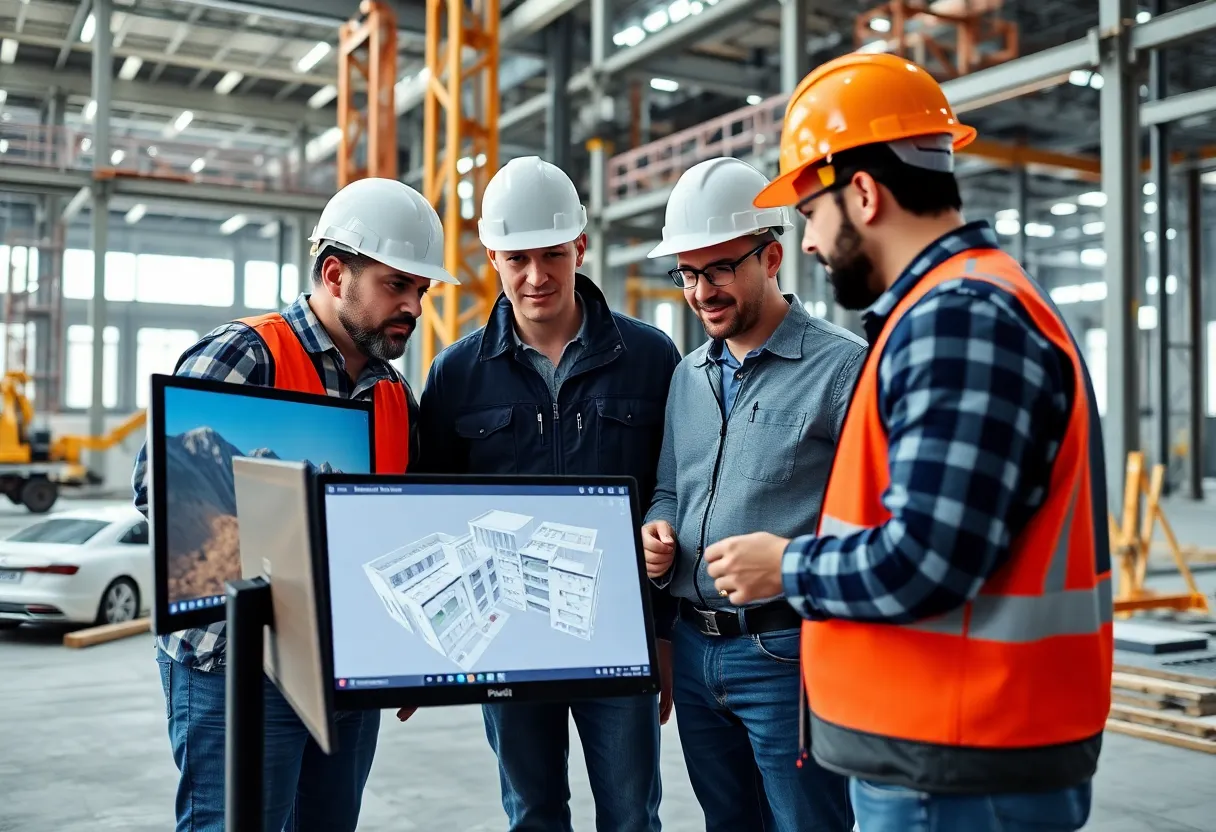News Summary
Autodesk is transforming the construction industry by enhancing its Building Information Modeling (BIM) capabilities, enabling better project lifecycle management. With cloud-based model management solutions, Autodesk aims to improve access to BIM models for all project stakeholders, including contractors and facilities managers. This innovation supports real-time collaboration, minimizing costly delays and reworks while bolstering long-term facility management with comprehensive digital twins. As only a fraction of construction companies currently utilize BIM in the field, Autodesk’s push for broader adoption aims to revolutionize construction efficiency.
Autodesk Expands Building Information Modeling (BIM) Capabilities
Building Information Modeling (BIM) has become a cornerstone of the architecture and engineering industries, revolutionizing the way design teams operate. This advanced technology enables professionals to create intricate 3D models, enhancing both the design and construction processes. However, a significant number of construction teams have yet to fully leverage BIM’s potential, particularly during the construction phase.
Current State of BIM in Construction
Recent statistics show that only 41% of construction companies currently utilize BIM models in the field. This indicates a considerable gap in the technology’s application, presenting a major opportunity for growth and enhancement in project execution. Traditionally, access to BIM models has been limited to design experts who utilize advanced software, which restricts collaboration between the various teams involved in a construction project.
Enhancing Accessibility with Autodesk
Autodesk seeks to bridge this accessibility gap with its latest Model Management solutions, which are designed to allow all members of a project team—including contractors, trade partners, and facility managers—real-time access to accurate, up-to-date models. With cloud-based tools, Autodesk focuses on ensuring effective collaboration among project stakeholders, from planning through to operations.
Benefits of Enhanced BIM Integration
The integration of Autodesk’s solutions enables teams to collaborate seamlessly using a single source of truth, which supports faster problem detection and more reflexive decision-making. Continuous collaboration between the design and construction workflows can keep BIM data moving fluidly throughout the project lifecycle, enhancing overall project efficiency.
Long-term Project Management
With accessible cloud-based tools, project models remain accurate and useful beyond the construction phase, aiding in ongoing building maintenance and operations. Autodesk’s software facilitates collaboration among designers, project managers, and field teams, enabling real-time feedback and quick adjustments in design as needed. Enhanced visibility of models and coordinated updates among teams fosters effective communication, which is crucial for project success.
Applications of Advanced Technologies
Tools such as Autodesk Recap Pro support architects by capturing real-world site conditions and integrating them into detailed 3D models. This capability expands the practical application of BIM, ensuring environments are accurately represented throughout the build process. Furthermore, Autodesk’s model management software enables real-time verification of installations, significantly reducing the risks of discrepancies between designs and actual construction.
Supporting Facility Management with Digital Twins
The concept of a digital twin—which includes comprehensive models and detailed asset information—underscores the importance of well-maintained facility management. All stakeholders benefit from receiving not just models, but also essential data for efficient project management post-construction.
Feedback from organizations suggests that Autodesk’s tools effectively cater to community needs through collaborative design processes. Increasing the adoption of BIM can greatly minimize costly reworks and project delays by promptly identifying conflicts via automated clash detection.
Improving Collaboration and Operational Management
Better collaboration practices facilitated through Autodesk’s solutions stand to alleviate common issues found in traditional workflows prevalent across the construction industry. Owners and managers now harness BIM’s capabilities for enhanced operational visibility and efficient asset management throughout a building’s lifecycle.
Future Trends in Construction Technology
The incorporation of reality capture technologies enhances the accuracy of built environment representations, improving coordination and analytics throughout projects. This not only advances safety measures and quality control but also streamlines overall project efficiency. Autodesk’s strategy emphasizes the necessity of stakeholder collaboration, ultimately aiming to improve project satisfaction rates and ensure successful project outcomes.
Deeper Dive: News & Info About This Topic
Additional Resources
- Autodesk: Extending BIM Across the Construction Lifecycle
- Exploding Topics: Construction Industry Trends
- Buildings: How Augmented Reality and BIM are Revolutionizing Construction
- Autodesk: Reimagining the Role of the BIM Manager
- Nature: Research Article on BIM Applications
- Wikipedia: Building Information Modeling
- Google Search: Construction Management Trends
- Google Scholar: BIM in Construction
- Encyclopedia Britannica: Architecture
- Google News: Construction Technology
Author: Construction NY News
The NEW YORK STAFF WRITER represents the experienced team at constructionnynews.com, your go-to source for actionable local news and information in New York and beyond. Specializing in "news you can use," we cover essential topics like product reviews for personal and business needs, local business directories, politics, real estate trends, neighborhood insights, and state news affecting the area—with deep expertise drawn from years of dedicated reporting and strong community input, including local press releases and business updates. We deliver top reporting on high-value events such as the New York Build Expo, infrastructure breakthroughs, and cutting-edge construction technology showcases. Our coverage extends to key organizations like the Associated General Contractors of New York State and the Building Trades Employers' Association, plus leading businesses in construction and real estate that power the local economy such as Turner Construction Company and CMiC Global. As part of the broader network, including constructioncanews.com, constructiontxnews.com, and constructionflnews.com, we provide comprehensive, credible insights into the dynamic construction landscape across multiple states.





